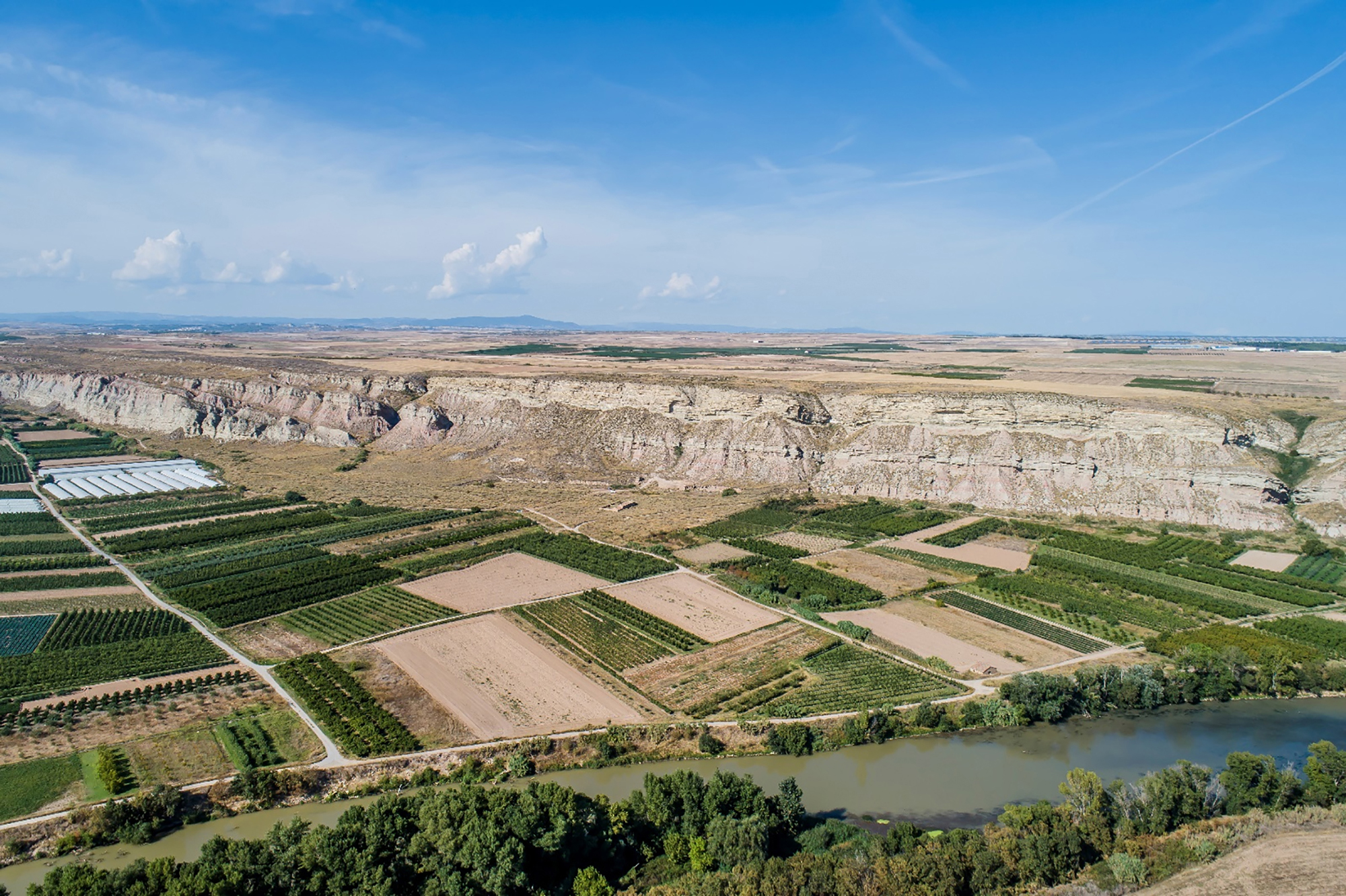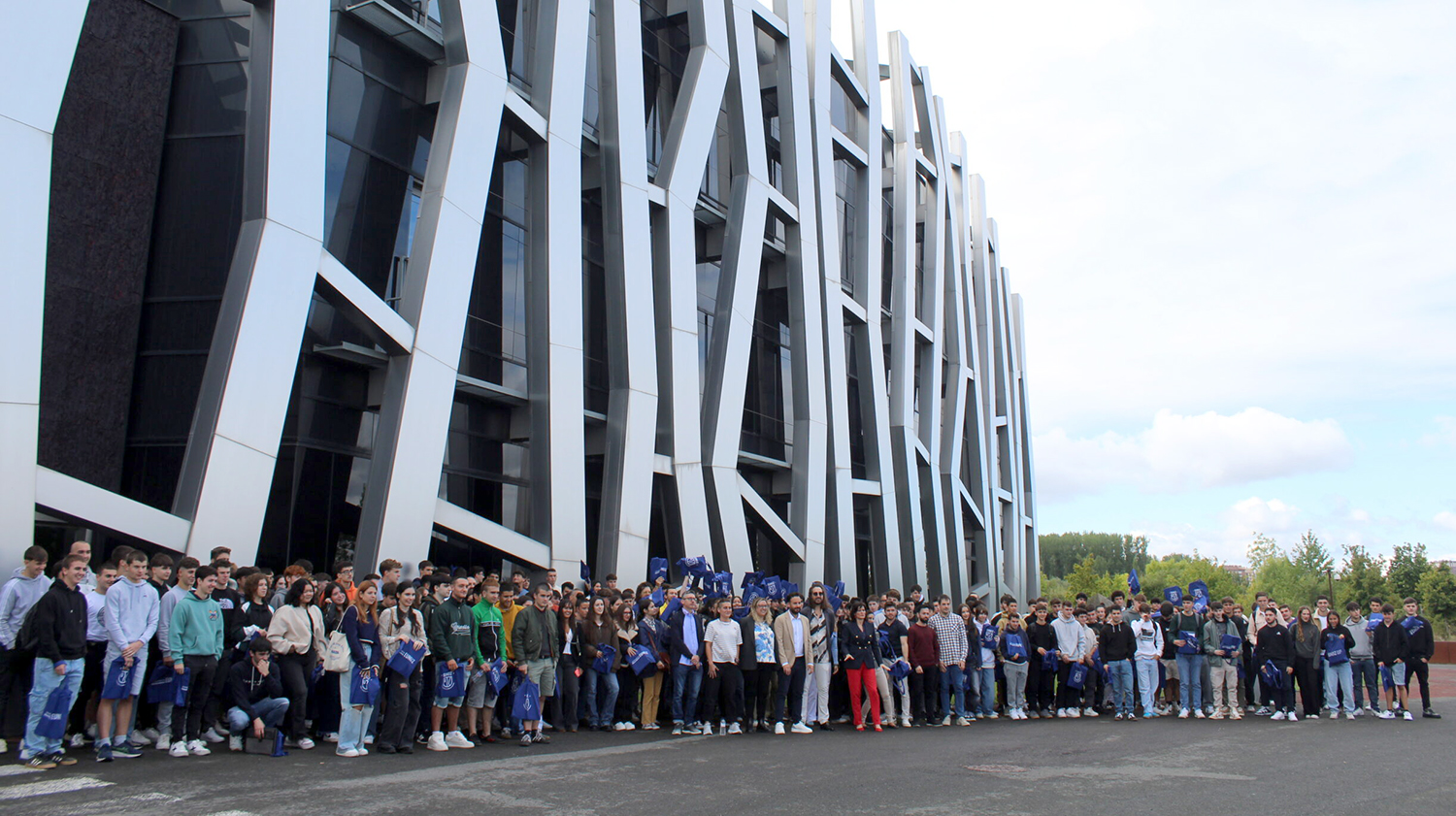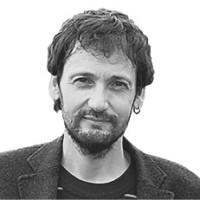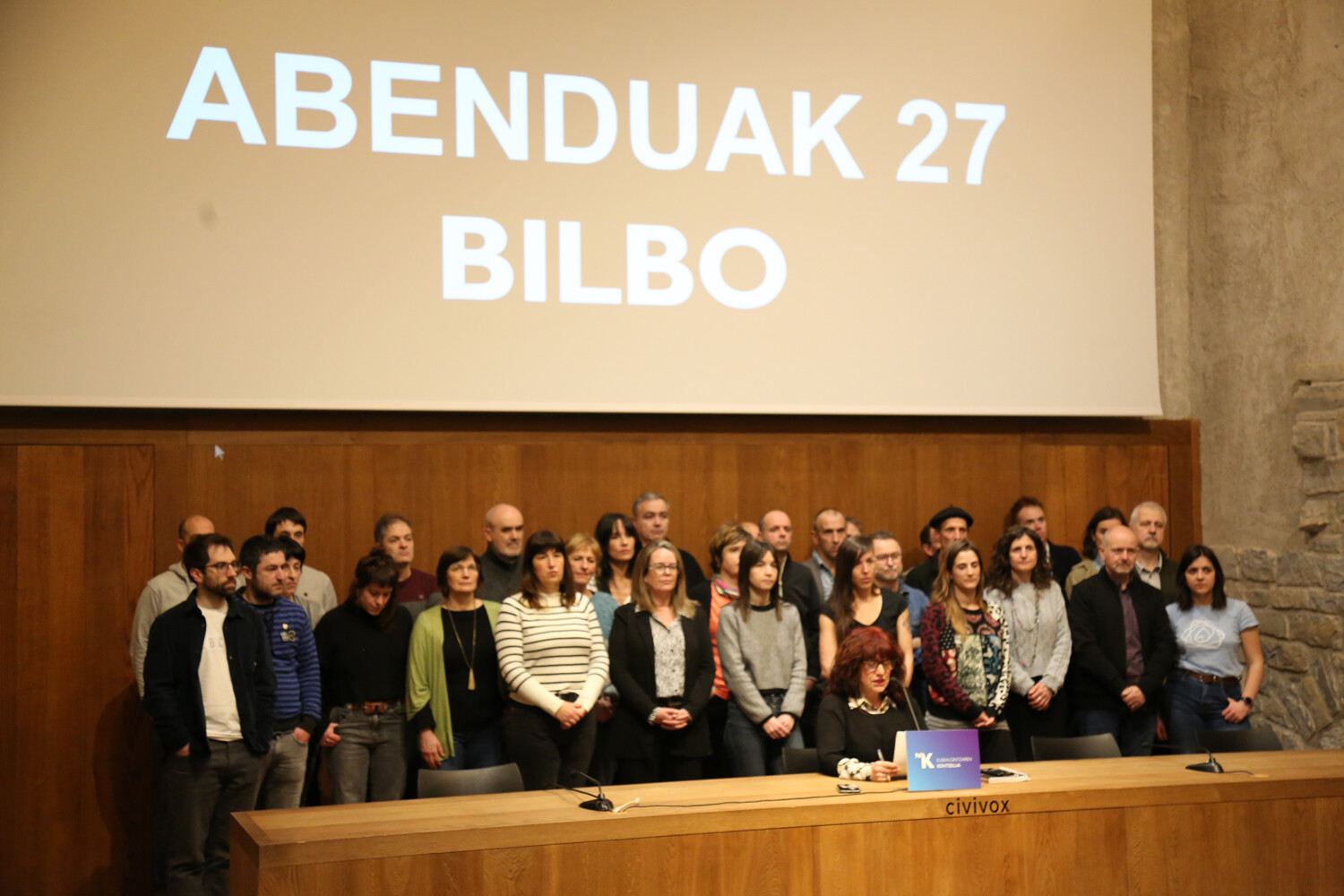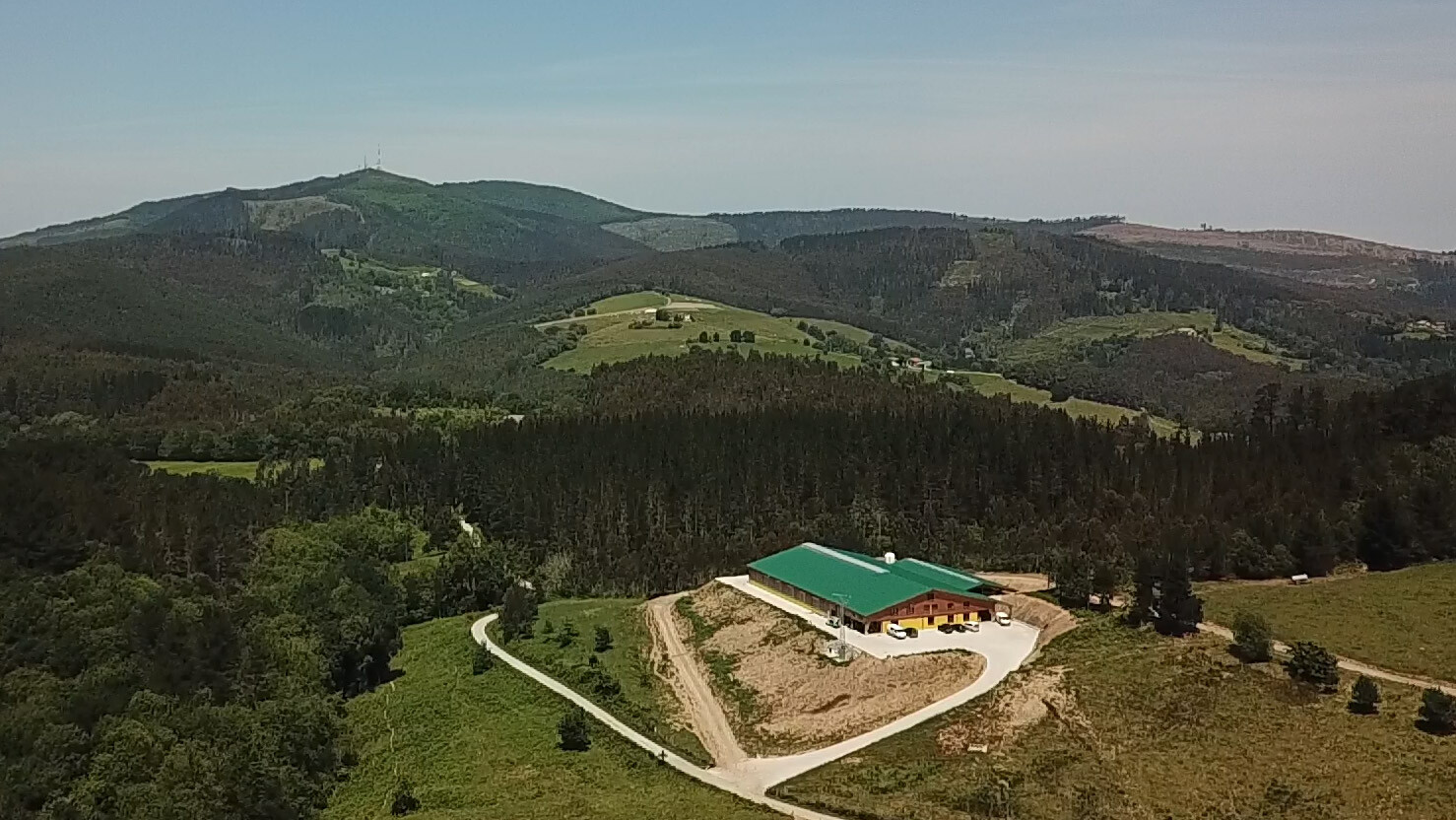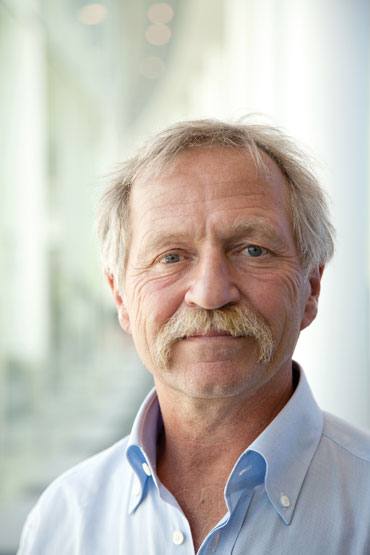
You have just presented in Cannes the film Tous au Larzac, which tells the story of almost ten years of struggle against the expansion of the military zone in Larzac. How do you remember that fight?
You can't make battles against the army, you must necessarily be more witty than they are. We won that battle with imagination and creativity, using what were then sufficiently new forms of action. It was very educational for me, since I immersed myself in it at the age of 18, and it was the indispensable era of my formation. This victory awakened in me the passion to advance, because I realized that from the moment we were able to awaken the unity among the people and the interest beyond those involved, a positive relationship of force spread, and only thanks to this can David win against Goliath. I don’t know if I carry the protest and the proclamation in my instincts, but when things are done against my conscience or what I think they should be, it is vital for me to react. That's how I was raised, that's how I built my identity, and that's how I've progressed. In this sense, the fight in Larzac was a great success. Not only for us, I would say that it has also been an engine for the many who did not know this season.
Whose land should it belong to?
I have no dogmatism about it, there is no ideal casuistry. There is only one maxim, that the land is in the hands of those who want to cultivate the land and prioritize cultivation above all. Agricultural land must be used to produce food through the employment of multiple farmers, regardless of the contracted condition of the land. It could be in property, rent, collective property... I don't care about that. The most important thing is the use of the land, not the ownership of the land. In fact, if we do not ensure the use of agricultural land, what will happen if the next generation instead of joining the crop begins to build houses on these lands? That is why the agricultural use of agricultural land must be guaranteed. Don't be a speculative tool.
Young farmers are not planted.
There are no young farmers who can buy land. We must facilitate the expansion of Alogera and, above all, when a landowner decides to rent his land, let the young man who wants to plant in both the classic and the innovative system prefer to use industrial growers who already have a lot of fields. I think it is essential to set the criteria for planting in rent, because we all know that starting in the property is not only impossible but also offensive today. What's the point of investing a fortune in some land to sell it later to the next generation, and the next to the next, and... That only concerns the bank.
The future of small-scale farmers is seen by many as black.
This is a major challenge of the reform of the current agricultural policy. Of the 14.5 million farmers in Europe, 12.5 million have less than five hectares. What does that mean? That a huge part of the reality is that of the typical growers. What I do not know is whether we will be able to strike a punch on the table and make them accept that these exploitations have an economic, social and environmental future. I hope so, because these are the ones that create local jobs, weave coherent social layers and allow for cultivated biodiversity. It's the tenor of throwing the whole process upside down. Although the European agricultural policy so far has only supported this, we need to move away from the logic of industrial farming by encouraging local farming, preserving short circuits and mimicking small and medium-sized units. To do this, it is essential to encourage the change of mentality that is taking place in society. We all see that the logic of importation goes against the interests of the people, and especially the simple people. That is why, let us not fool ourselves, there is no Europe without farmers. If there are no farmers, how can we be sovereign? How will we develop our sovereignty if we depend on multinationals and countries that import into us? The defense of cultivators and smallholders is vital to the achievement of food sovereignty, knowing that this is the indispensable basis of any political project.
When you talk about multinationals and industrial cultivation, how do you fight against genetically modified organisms or drift?
Before Deus, we must be aware that not only are modified organisms not the solution, but they are also a way for giant pesticide producers to sell seeds adapted to their pesticides. On the other hand, to fight against genetically modified organisms today is to fight against the privatisation of seeds, to fight against the oppressive role of multinationals who want to control seeds, and to realize that these multinationals put our environment and health in grave danger. More and more researchers and doctors agree that there is an increase in cases of cancer associated with pesticides and that, given the increasing weight of the environment in health, diseases are waiting for us on the corner of the street. For this reason, the fight against drift-modified organisms is a fight against environmental destruction, but also against the shredding of people. It is a global war against the productivist crop that has turned its back on the agronomic laws that can regulate the crop. But it all starts with awareness. It is only from this that a relationship of strength can flow that a moratorium can be attained. It is a subject that will require constant and eternal attention, because these giant firms are always on the doorstep, ready to reject what is placed in front of them and to devour the market.
Basically, don’t we live in a system where economic power is stronger than political power?
Clearly and unequivocally. The economic powers have been autonomous with respect to the political powers and have created rules for self-advancement, passing over both states and groups of states. Today’s large multinationals have larger budgets than many states. As long as there is no counter-power they will rule, we will live in the world that they decide and decide. This can be addressed in different ways. On the one hand, there is the power of the citizens, each one can choose what to eat, what to buy, what to boycott. On the other hand, policies can be designed at European level that break the logic of monopoly or make it difficult for these multinationals to privatise their seeds. If we ban the privatization of seeds, the speculative system will not work and all the schemes of the multinationals so far will be reversed. But this depends on a political will, which usually appears only driven by the will of the citizens. That’s why it’s up to the citizens to show strength so that politicians can undermine these economic powers.
However, these economic lobbies are not so easily inclined. Everybody knows what Monsanto is doing and it's still there.
Economic lobbies do their job, trying at all times to make as much money as possible and acquire as much power as possible. They try to impose certain rules of the game, knowing that they are beneficial to their economic interests. At this point, we have no choice but to keep working. On the day when the seeds can no longer be privatised, the drifting organisms will disappear, because the post-investment returns will disappear. This privatization allows Monsanto and the others to force the grower to buy these seeds the following year, rather than replant their own crop. What is happening is extremely serious, and in order to deal with it, there is nothing else to do but mobilize and be on top.
In view of what has happened in the world in recent months, it seems that we have entered a golden age of mobilizations.
We are in a time of crisis, a situation that strikes more people every year, and it is clear that the disgust sooner or later overcomes it. What I find significant is that, as in the Arab Spring, a new generation has risen and has succeeded in launching movements to undermine dictatorships. Either in Spain or in other European states, people are disgusted and don’t see any future. As in Spain, when 48% of under-25s are unemployed, there is no other way to revolt if it is not to fall into fatalism. With the complete loss of belief in the classical political debates, we are raising our awareness of our destiny to intervene again. It is obvious that we are faced with the desire to recover the leaders of democracy, the times in which we left democracy in the hands of others are over, and the hope that is emerging is as great as it is real.
Illegal breakdowns of plantations made up of genetically modified organisms, the action against McDonald’s in Millau... You've often gone beyond the speech.
I have always tried to be consistent, and when I felt that the actions were necessary, I have carried out what I was supposed to do with my responsibilities. This may reflect a form of struggle, a vision of life, but it is up to each one to absorb their own discussion and challenges. What is clear is that democracy must be reinvented, because when the pipes of democracy are covered, when the institutions are frozen and overcome, it is up to the citizens to react in disobedience to laws contrary to the collective and common interest. The question of legitimacy transcends the framework of legality, and even when legitimacy has been illegal I have never doubted it. But this is a personal choice that is framed in a collective choice, and that is basically how civil disobedience movements, both organized and fast, are born. In this sense, the 20th century has shown that violence does not imply progress, that it does not unblock anything, and that even when the movements that were based on violence have fulfilled their goals, they have subsequently created violent societies. It was long ago that Gandhi said that in the tree seed how, the goal was in the media. With this in mind, I see immense maturity in the many social movements, and if the Arabs have shown us that they have expelled dictatorships with peaceful and popular movements, everything is possible.
After Fukushima, the last of the nuclear power seemed possible, but for the umpteenth time, keep the dust under the tapestry, and everything remains the same.
We were asked to consider what happened after Chernobyl as normal, because it happened in the communist system of soviets that was about to die, and we were saved from all evil. But Fukushima is in Japan, one of the most industrialized and technologically advanced countries, which clearly proves that no one is free from the accumulation of natural problems that entails a technical disaster. Now, for example, France is experiencing a severe drought, with 38 of its 52 nuclear power plants located on the banks of rivers, and perhaps in the summer these plants will have to be shut down because cooling systems will fail. Who knows what can happen to the reactors? Going further, ten power plants in France are built on seismic cracks, and the fact that there have been no earthquakes so far does not guarantee that there will be no further earthquakes. This leaves the debate on nuclear safety paused, and seeing the human and environmental cost of such disasters, it is clear that the nuclear is not worth it. This alone is enough to say that you have to turn your back on nuclear energy to go in search of energy alternatives and implement a development model in the plant that reduces consumption.
Eternal interests have emerged, however, under the theme of fracking or shale gas.
This is also a global struggle, despite the fact that it takes place in France, which is a struggle against the exploitation and exploitation of the world’s oil and gas giants. They are trying to take possession of a lot of land to use it for their own benefit. So far, permits have been obtained almost clandestinely to acquire these lands without debate, without deliberating in the public square where we had to go the last drop of gas or oil. Not only that, but in addition to the democratic problem, we come across a technological problem, because hydrolytic fracturing is the only way to go in search of these products and this is very dangerous for different layers of the earth. People have mobilized very strongly and have made a clear choice between water and oil. People know that if they don’t, the water will soon be polluted and their people will have to abandon them.
Mobilisations, mobilisations and actions, some would have told you that the street is the place of an alterglobalist leader and not the European Parliament.
I am not going to lecture anyone, but after 30 years of fighting against European agricultural policy, we have a real chance to get into these institutions and change things radically. What is clear is that, high up, the achievements will be based on adherence to what we can do in and outside the institutions. I hope that we will be able to change the letters and rewrite the main lines and denounce with a different echo what needs to be denounced. Our mode of struggle has not changed. We come to this Parliament to create new correlations of forces, for which we need autonomous movements that remain mobilised. Their work makes us effective.
Talence-n (Frantzia) sortu zen 1953ko ekainaren 11n. Urtetan Nekazarien Konfederazioko eta Vía Campesinako sindikalista, egun eurodiputatua eta mugimendu altermundialistaren aurpegi ezagunenetakoa da. Liburu zenbaiten egile, Cannes-en aurkeztu eta udazkenean aretoetan izango den Tous au Larzac filmaren protagonistetako bat ere bada.
“Estatuek arazoak Europatik datozela eta eurak gure interesak babesten saiatzen direla saltzen digute herritarroi. Hori gezur handia da. Estatuek Europa aitzakiatzat erabili arren, beraiek daude Europaren eraikuntza eta kudeaketaren aurrean”.
Linear A is a Minoan script used 4,800-4,500 years ago. Recently, in the famous Knossos Palace in Crete, a special ivory object has been discovered, which was probably used as a ceremonial scepter. The object has two inscriptions; one on the handle is shorter and, like most of... [+]
Londres, 1944. Dorothy izeneko emakume bati argazkiak atera zizkioten Waterloo zubian soldatze lanak egiten ari zela. Dorothyri buruz izena beste daturik ez daukagu, baina duela hamar urte arte hori ere ez genekien. Argazki sorta 2015ean topatu zuen Christine Wall... [+]
Gozamen aparta bezain deskribatzeko zaila dakar, norbaiten hitzak irakurri edo entzun ostean, zera pentsatzeak: “Horixe zen neu aurreko hartan azaltzen saiatu nintzena!”. Idazlea eta itzultzailea da María Reimóndez, eta galegoz aritzen da, hizkuntza... [+]
The writer Juan Bautista Bilbao Batxi worked in a boat and sent the chronicles of his travels to the newspaper Euzkadi. Thanks to this, we have interesting chronicles in Basque from around the world from the beginning of the 20th century. In June 1915, he made his stop in... [+]
Segurtasun falta dagoen irudipena handitu dela azaldu du Eustaten azken txostenak. Gurean, Trapagaranen, Segurtasuna orain, delinkuenteen aurka manifestaziora deitu dute herritar batzuek.
Bi izan dira sentsazio hori zabaltzeko arrazoiak. Batetik, udalak Udaltzaingoaren... [+]
Haurtzaroaren amaiera eleberri distopikoa idatzi zuen Arthur Clarkek, 1953. urtean: jolasteari utzi dion gizarte baten deskribapena. Eta ez al da bereziki haurtzaroa jolasteko garaia? Jolasteko, harritzeko, ikusmiratzeko eta galdera biziak egiteko unea. Ulertzeko tartea zabalik... [+]
There are those who subscribe to portals to sell their homes because they would like to buy a house. From time to time they even make appointments to see the houses, and I am sure that the seller knows that these people will not buy the house, not because they find it in the... [+]














